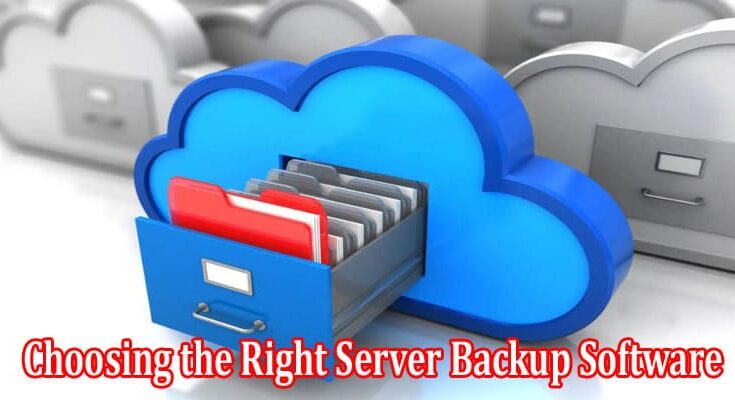In today’s digital age, data is the lifeblood of businesses. Data loss can have severe consequences, from essential documents and customer information to financial records and project files. So, businesses must invest in reliable server backup software to protect their valuable data. However, with many available options, selecting the right server, such as Windows server backup, can take time and effort. Hence, this article will discuss critical factors and evaluation criteria to help you choose the ideal restoration suite.
Understanding the Importance of Server Backup
Server backup is a critical aspect of data protection and disaster recovery. It involves creating copies of your server’s data and storing them securely. In the occurrence of loss or damage of data due to hardware failure, human error, malware attacks, or natural disasters, Windows server backup restore ensures you can restore your data and resume business operations quickly.
Key Factors to Consider
- Reliability and Performance: Reliability and performance should be top priorities when evaluating server backup software. So, look for software that offers robust backup mechanisms, such as incremental backups and block-level deduplication, to optimize storage space and reduce backup times. Additionally, consider the software’s track record, customer reviews, and any industry certifications it may hold.
- Scalability: As your company grows, your data volume will increase. As such, choosing a restoration suite that can scale with your organization’s needs is crucial. Ensure that the software supports backup for multiple servers and provides flexible storage options, including cloud-based solutions, to accommodate future growth. For example, you can use Windows image backup to restore your system’s images.
- Ease of Use: The ideal server backup, such as Windows backup software, should have an intuitive user interface and easy-to-use features. Backup processes should be automated and streamlined, requiring minimal manual intervention. This allows your IT team to focus on other critical tasks while ensuring backups are performed consistently and accurately.
- Compatibility: Compatibility is a crucial consideration when selecting restoring software. So, ensure the software is compatible with your server operating system, whether it’s Windows server backup software, Linux, or another platform. It should also support various applications and databases commonly used in your organization.
- Security and Encryption: Data security is paramount, especially regarding backups. So, look for server software with robust encryption algorithms to protect your data during transit and storage. It should also support secure protocols for data transfer, such as SSL/TLS, and offer options for encryption key management.
Evaluation Criteria
- Backup and Recovery Speed: You should test the software’s backup and recovery speeds by simulating real-life scenarios. As such, measure the time to complete a full backup, incremental backups, and the recovery time for different data types. Then, choose software with fast, efficient backup and recovery processes to minimize downtime.
- Data Deduplication and Compression: Evaluate the software’s data deduplication and compression capabilities. These features can significantly reduce storage requirements and optimize network bandwidth usage. As such, look for software that offers efficient deduplication algorithms and compression techniques to maximize storage efficiency.
- Reporting and Monitoring: Comprehensive reporting and monitoring capabilities are crucial for effective backup management. So, evaluate the software’s reporting features, such as backup status reports, error notifications, and audit logs. It should provide real-time monitoring and alerting mechanisms to ensure successful backups and any issues promptly addressed.
- Disaster Recovery Options: Assess the disaster recovery options provided by the recovery suites. As such, look for features such as bare-metal recovery, which allows you to restore your entire server configuration, including the operating system and applications, to different hardware if needed. This ensures work continuity in the event of a catastrophic failure.
Choosing suitable server recovery suites is a critical decision for any business. You can make a consistent choice by considering key factors such as reliability, scalability, ease of use, compatibility, and security. Additionally, evaluating backup and recovery speed, data deduplication and compression capabilities, reporting and monitoring features, and disaster recovery options will help you select a software solution that meets your needs.

Caroline is a dedicated writer with a passion for keeping readers informed. Specializing in providing the latest news updates and unbiased reviews, she strives to deliver accurate and insightful content. With a keen eye for detail and a commitment to journalistic integrity, Caroline ensures that her readers are always well-informed. Stay tuned for her latest articles to stay up-to-date on current events and trends.




